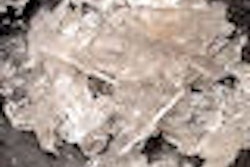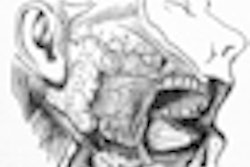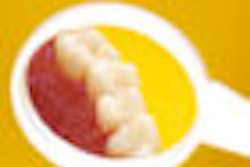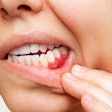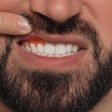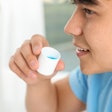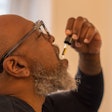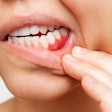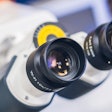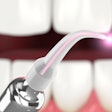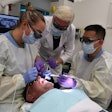
A Los Angeles-based biotechnology company has ambitious plans to advance the ability of dentists to combat caries in their patients' mouths. Using a peptide developed at the University of California Los Angeles (UCLA), C3 Jian is working on a product that would target S. mutans in the oral cavity.
"This particular technology is a 'smart bomb,' as we call it," chief science officer, co-founder of C3 Jian, and chairman of oral biology at the UCLA School of Dentistry Wenyuan Shi, PhD told DrBicuspid.com. "What we did was take a broad-spectrum killer, an antimicrobial peptide, and put a homing device in front of it; the homing device seeks out the bacteria we are trying to destroy."
The peptide, known as Specifically-Targeted Antimicrobial Peptide, or STAMP, also has a killing region that eliminates the bacteria once it attaches to S. mutans.
— Todd R. Patrick, C3 Jian CEO
"That's what we mean by a targeted approach," C3 Jian CEO Todd R. Patrick said. "We think this will allow more beneficial bacteria to populate and grow into the niches of the mouth that were previously filled by S. mutans."
The peptide technology is at the heart of the company's lead product, a drug called C16G2, which is indicative of the type of products C3 Jian intends to bring to the market.
"We really think that we have the potential to change the practice of dentistry to move it forward into more of a medical model using cutting-edge drugs and diagnostic tools, whereas the previous ways to manage this disease have largely been surgical, with drilling and filling," Patrick told DrBicuspid.com.
Phase I clinical trials
Founded in 2005, C3 Jian is based on STAMP technology developed by Dr. Shi and his colleagues at UCLA in 2004, when they completed the first prototype. The company is anexclusive licensee of patents covering a cell signaling platform technology from The Regents of the University of California.
Delta Dental has been instrumental in funding the effort, with members of the association from Washington and Wisconsin providing funding in 2005 and 2006, respectively, while Virginia and Michigan provided funding in 2007. Last month, the company closed $30 million in financing to further develop C16G2.
"Right now we're finishing up all of the non-clinical activities that we need to do to approach the U.S. Food and Drug Administration (FDA) with our Investigational New Drug (IND) application," noted Patrick. "We had an IND meeting with the FDA last summer that went well, so we're finishing up the activities that one needs to do to take a small molecule drug and do clinical trials."
That process should be completed this month and the application likely filed by the end of April, he added.
Plans for Phase I clinical trials are in place. Some 30 to 40 adult subjects will be testing three different doses of the drug, together with a mouth rinse vehicle, in a 30-second swish-and-spit formulation, according to Patrick.
"We'll monitor the volunteers for reduction of S. mutans and safety over a several month period to see how rapidly and effectively we can reduce the bacterial load in the oral cavity," he said. "Then we'll observe what the therapeutic duration of that effect is."
If C16G2 is able to make it through all three phases of the FDA's clinical trials, C3 Jian will launch it commercially as a professional product for dentists and hygienists.
"People are always joking, 'Are we trying to put dentists out of business?'" Dr. Shi said. "In reality, this is going to be another tool, like fluoride, that will help dentists combat the disease better while promoting their business, as well."
Other applications
The company has a diagnostic program in development that will serve as a companion to the C16G2 drug if it is successful. A handheld device, operated by a dentist or hygienist, would gauge the level of S. mutans in a patient's mouth.
"If we prove this theory that bacterial load of S. mutans is important to treat caries," Patrick explained, "then we want to be able to offer a device that would help dentists measure that along the way, either for candidates for the therapy and/or for individuals on the therapy, so that practitioners can continue to ensure that the bacterial load of S. mutans stays low or hopefully nonexistent."
The device could also help dentists determine if the drug is an appropriate treatment.
"There are some who are lucky enough to go through life without getting a cavity and that's probably because of a little bit of hygiene with a lot of good genetics," Patrick said. "So you may not want to pay for this for everybody, or insurers may not, because there are those out there who would not benefit from it."
C3 Jian has a third area of research pertaining to certain peptides' abilities to remineralize teeth. While exploring those possibilities, they observed another means of marketing the technology.
"We found in animal testing that they can also revitalize hair and nail growth," said Patrick.
While an effective treatment for baldness could be immensely lucrative, the company intends to focus on products that will move dentistry forward.
"It's our hope that we can contribute to the dental profession's more effective management of this disease by developing new tools that dentists can use to help improve patient care," Patrick said.




